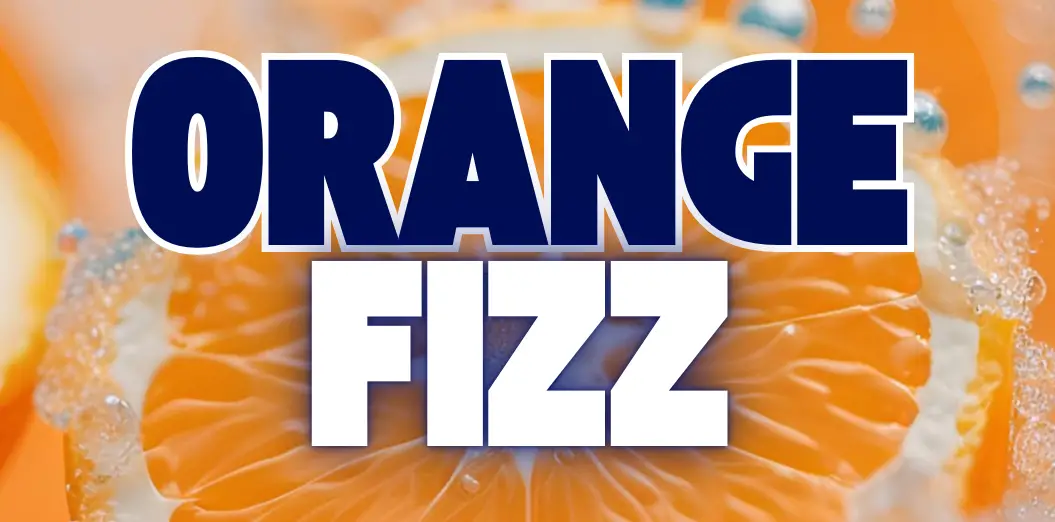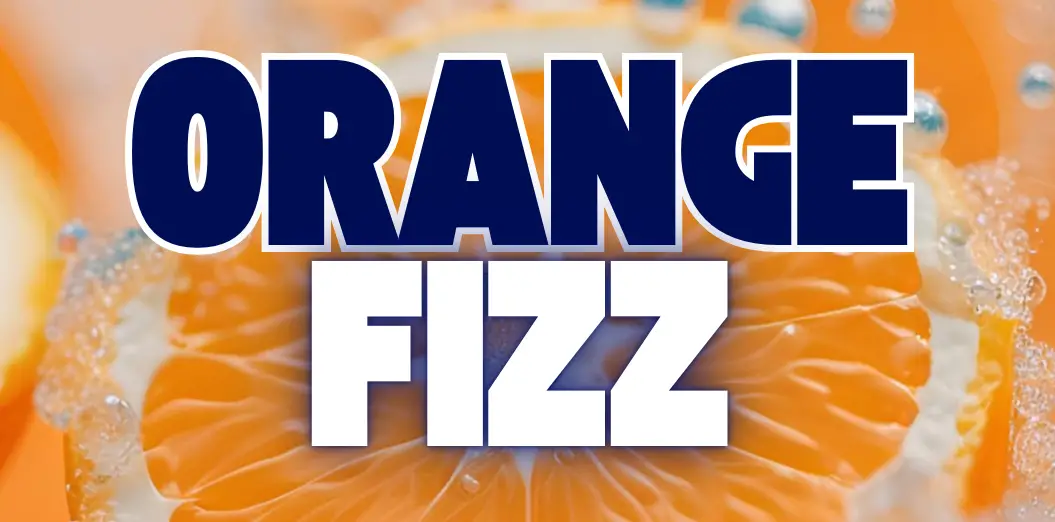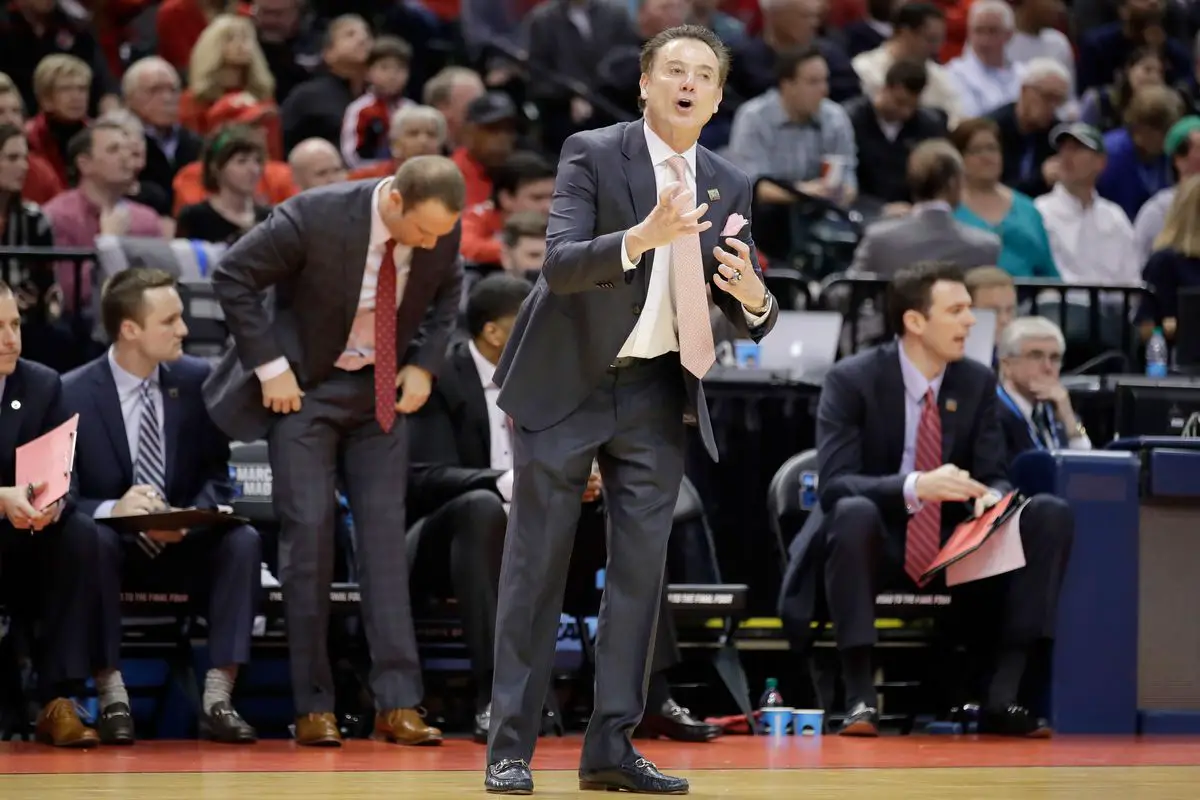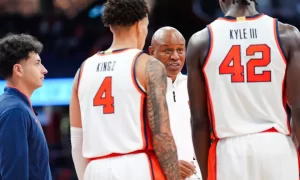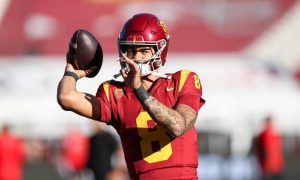When the news broke on Tuesday that at least four NCAA Assistant Coaches were arrested in conjunction with an FBI corruption investigation, it came as a huge surprise to fans and the NCAA alike. Coaches from Oklahoma State, Arizona, USC and Auburn were arrested in the first wave of ten arrests. As the day wore on, more news slowly came out, including the implication of two ACC schools in this three-year corruption investigation; Miami and Louisville.
Okay, so what does all of this mean? What exactly are these schools accused of, why is it such a huge deal and what are the far-reaching consequences of this going to be? I will do my best to answer all of these questions in the following post. For the sake of full disclosure, I am not a lawyer. There are things I do not understand and there are still many parts of this story that are developing and will change in the coming days and weeks. It could even change in the coming hours. Here is the most succinct breakdown that I can come up with. I separated the topics here so you can skip to the parts most relevant to you.
What Exactly Happened?
There are two separate but related schemes that went on here. The four initial arrests that were made (assistant coaches at Oklahoma State, Arizona, USC and Auburn) fell under the first scheme. The Director of Global Marketing at Addidas allegedly funneled money to these schools with the understanding that these assistant coaches would bribe their players and steer them towards certain agents and towards a deal with Addidas when they finished college. The second scheme is more relevant to Syracuse, simply because it implicates two ACC schools. Louisville and Miami are accused of using paying recruits $100,000 and $150,000 respectively to come to the school. It is widely believed that Louisville’s “bribe” was directed to their top recruit in the Class of 2017, Brian Bowen.
Reading between lines not so hard: this details how Louisville got commitment from All-American Brian Bowen in June — for $100K: pic.twitter.com/azXgMKYIl8
— Andrew Das (@AndrewDasNYT) September 26, 2017
What was the Response From the Accused? 
All four assistant coaches involved in the first wave have been either suspended or fired and face up to 80 years in prison. Both Rick Pitino, the head coach of Lousiville, and Jim Laranaga, the coach at Miami, have denied any knowledge of wrong doing. Interesting to note that both coaches elected to make statements through personal attorneys and not though the school or directly to the media.
What’s Next?
This could just be the beginning. Numerous reports suggest that this could just be the beginning. More schools could be implicated, more big names may be under fire and more big-time programs may be forced to answer big questions. Only time will tell. The following is a quote from the FBI agent who went undercover and gathered much of this evidence.
“Because this affidavit is being submitted for the limited purpose of establishing probable cause, it does not include all of the facts that I have learned during the court of the investigation.”
Okay, So Why Do We Care?
Other that just the obvious of wanting college basketball to be as clean and fair as possible, this entire incident will surely have an impact, both immediate and long-reaching. If you want to look at this from a current recruiting perspective, this is actually good news for the Orange. Syracuse is reportedly in the final two for Jalen Carey. The other school? The University of Miami. If everything we learned Tuesday turns out to be true, it is hard to imagine that Miami escapes this with anything short of major sanctions. Carey would be an absolutely massive get for the Orange to add to an already impressive Class of 2018, including five-star forward Darius Bazely.
This incident could change the shape of the ACC for years to come. The University of Louisville has already been in trouble with the NCAA in recent years. The Cards were accused, and punished for, hiring an escort service to pursued visiting high school players to commit to the university. A second recruiting violation in quick succession makes U of L eligible for the “Death Penalty” which is a total suspension of the program and hasn’t been used by the NCAA in about 30 years.
At the very least, the implicated programs are subject to massive scholarship reductions and recruiting restrictions. This scam was so deep that the FBI did not even trust the NCAA to have knowledge of the investigation. Information will continue to come out and will paint a clearer picture of what exactly happened and what it means. It is hard to think that college basketball fans would have thought that the sport was completely clean but Tuesday’s revelations show a dark side of college basketball that no one wanted to believe could exist. Until this investigation and findings are complete, we will not know the full scope of it and can only speculate about what is next. What we do know is that Tuesday was likely a huge turning point in the history of college basketball.
